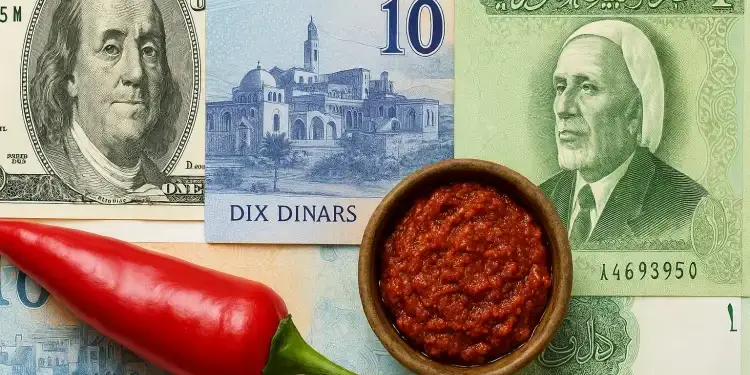In recent times, an animated debate agitates social networks: how to explain that the Tunisian dinar remains stronger than the Libyan dinar, while Libya is rich in oil and that Tunisia is often reduced to its famous Harissa and its olive oil? Behind this caricatured comparison hides a more complex economic reality.
Currently, the Tunisian dinar (TND) is exchanged at around 1.54 Libyan dinar (LYD). This situation may surprise, since Libya has large oil reserves. Better still, it must be recalled that the Tunisian dinar turns out to be the strongest currency on the African continent, compared to the currencies.
However, monetary stability does not only depend on natural resources. Libya faces persistent political instability, fragmented governance and excessive dependence on oil. These factors weaken its currency, despite its resources.
Tunisia: a diversified and resilient economy
Unlike Libya, Tunisia has diversified its economy. It is active in several sectors such as tourism, the pharmaceutical industry, information technologies, agriculture, and many others. This diversification offers resilience to economic shocks and contributes to the stability of the Tunisian dinar.
In addition, transfers from the Tunisian diaspora, which represent hundreds of millions of dollars, support the national economy. The prudent management of monetary policy by the Central Bank of Tunisia also plays a crucial role in the stability of the Dinar.
The comparison between Tunisian Harissa and Libyan oil, although provocative, highlights the importance of economic diversification. The Harissa, listed as the intangible heritage of UNESCO, symbolizes Tunisian know-how and the country’s ability to enhance its traditional products on the international scene.
On the other hand, the excessive dependence of Libya, and other countries, to oil makes it vulnerable to price fluctuations and political instabilities. This shows that wealth in natural resources does not necessarily guarantee a stable economy.








